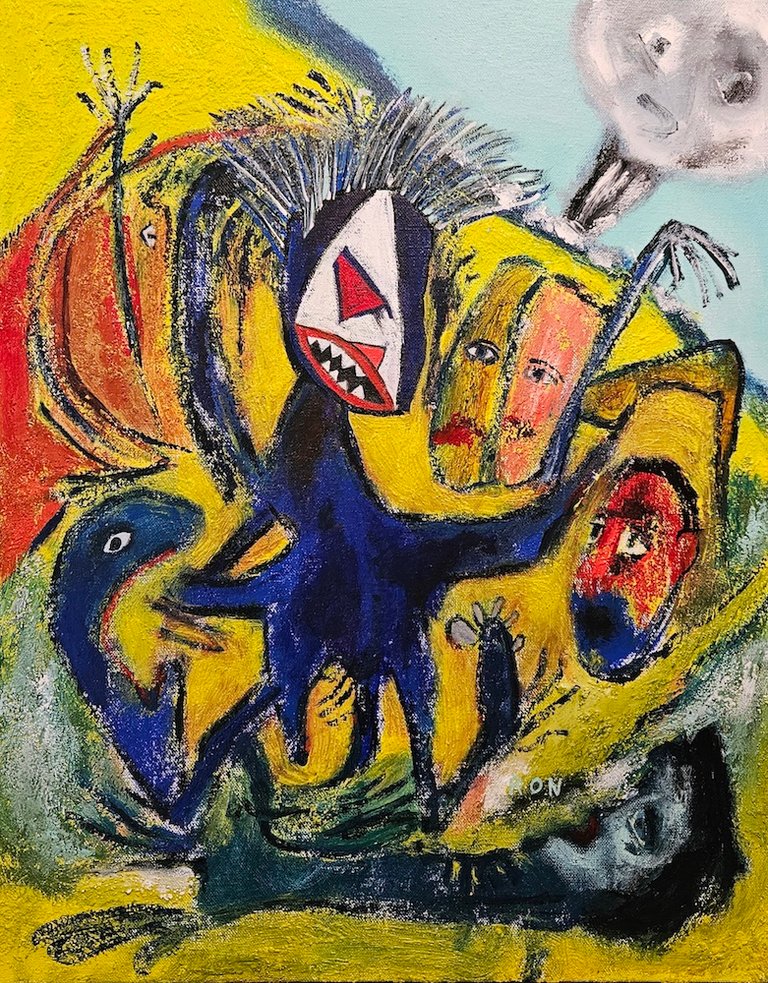
Normalizing Atrocity for the Tribe 2024. Acrylic on canvas, 16 x 20"
Ordinary people commit atrocities without awareness or care. I imagine families joyfully celebrating Christmas 1943 in Ollendorf Germany, just over an hour’s walk to Buchenwald. A strange smell in the air on Christmas Eve, (soldiers were cooking human beings down the road); perhaps Father Christmas was burning reindeer pies in his sleigh to keep warm. He was coming to spread joy to the innocent little Aryans whose parents thought it best to be good Germans first, and pretend to be better when the political atmosphere wasn’t so charged.
These are my neighbors and friends today. Maybe even worse since, unlike sympathetic Germans of the Holocaust (there might have been a few) who lived dissonantly among their atrocities like the Israelis do today assuming their governments were good Daddys like Santa (Abraham), dumb ass Americans could stop the horror with a minimal amount of protest. But they don’t even think about it. They buy cars and eat macaroni and cheese and watch one Krampas get nipped in the ear while the other assists in the slaughter of 42 Palestinians per hour, day after day after eh? What’s for dinner? Oh yum. Mac and cheese!
What good is it to be a canary in the coal mine to miners who don’t give a damn that Pennsylvania is a coal burning furnace this summer, or if their own great grandchildren will be hunchbacked cannibals “living” in marauding bans at the poles in 75 years?
I was perplexed as to what the usefulness of any of the arts might be, with the possible exception of interior decoration. The most positive notion I could come up with was what I call the canary-in-the-coal-mine theory of the arts. This theory argues that artists are useful to society because they are so sensitive. They are supersensitive. They keel over like canaries in coal mines filled with poison gas, long before more robust types realize that any danger is there.
—Kurt Vonnegut
